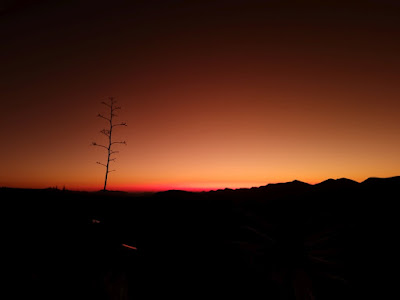The engines of the 330 roared into life. Half a minute later, we were in the air. The bright lights of Frankfurt became fainter and fainter as we ascended into the skies. We were not ony leaving Europe behind, but also lightpollution. And the glow of Frankfurt was a perfect reminder of this.
10 hour later, just after 8 in the morning, we touched down on the airport in Windhoek, Namibia. My fifth time in this astronomy heaven. Where the skies are more or less clear every night for months.
After some initial wait, our drivers finally arrived to take us for a 3 hours drive into the desert. It was clear that Namibia had seen much needed rains. The last time, most of the vegetation was dry and dead. Now it was green everywhere.
The drive was nice. With long, dusty roads. Some local wildlife showing up here and there to greet us. Baboons and worthogs. Finally, we arrived at the astrofarm. High in the mountains. Almost 2km above sea level. Here we will be staying for two weeks. Exploring the skies. Taking photos. And enjoying the area and the views.
 |
| One of the locals greeting us |
This time around, when night fell, it was obvious that there was something different in the skies. The sundown was more colourful and lasted longer than before. Obviously, dust from the Tonga eruption filled the atmosphere. Invisible in places that I am used to. But here, with its pristine air and dark skies, it became obvious. The skies were brighter than before. But even with this added "bonus", it was amazing to see the skies again. Where the Milkyway is so bright that it casts a shadow on the dark ground.
I don't need a telescope to enjoy the view. I can stand for hours just looking at the stars. Shining brighter than anywhere else. The dark bands of the Milkyway. Dreaming away into the night sky. Ever since I was a little kid at 4 or 5, I have stared at the stars. In wonder. And awe. And I probably always will.
Ragnar
Stargazer














